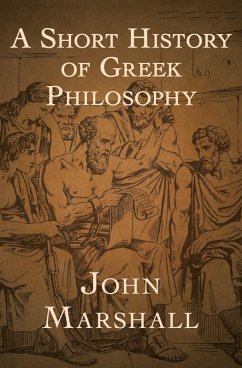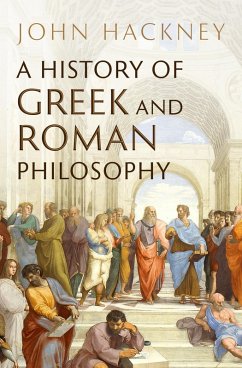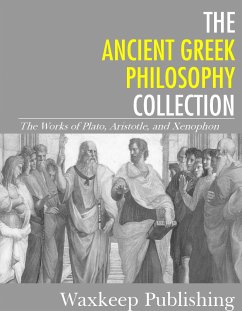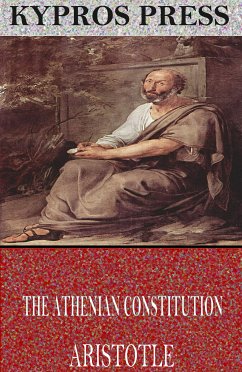
A Problem in Greek Ethics (eBook, ePUB)
Enriched edition. Being an inquiry into the phenomenon of sexual inversion, addressed especially to medical psychologists and jurists
Kommentar: Pearson, Brandon / Redaktion: Good Press

PAYBACK Punkte
0 °P sammeln!
In "A Problem in Greek Ethics," John Addington Symonds explores the complexities of pederastic relationships in ancient Greece, scrutinizing the moral and social frameworks that governed them. Employing a rich, eloquent literary style characterized by historical rigor and philosophical inquiry, Symonds delves into the ethical nuances that challenge contemporary understandings of love and mentorship. The book situates itself within the broader context of 19th-century Victorian debates on sexuality, seeking to reassess the values imposed by modern morality upon ancient practices. Symonds, a note...
In "A Problem in Greek Ethics," John Addington Symonds explores the complexities of pederastic relationships in ancient Greece, scrutinizing the moral and social frameworks that governed them. Employing a rich, eloquent literary style characterized by historical rigor and philosophical inquiry, Symonds delves into the ethical nuances that challenge contemporary understandings of love and mentorship. The book situates itself within the broader context of 19th-century Victorian debates on sexuality, seeking to reassess the values imposed by modern morality upon ancient practices. Symonds, a noted figure of the late Victorian period and an ardent advocate for homosexuality, was profoundly influenced by his own experiences and intellectual milieu. His works not only championed the appreciation of classical literature and art but also sought to dismantle the rigid moral codes of his time, making "A Problem in Greek Ethics" a crucial text in the evolution of queer theory. His personal conflicts around sexuality and a cultural backdrop rife with repression motivated his inquiry into a world where alternative sexualities were more readily accepted. This book is highly recommended for scholars of classical studies, philosophy, and LGBTQ+ history, as well as for any reader interested in the intersections of ethics and sexuality. Symonds' insightful treatment encourages a respectful engagement with the past, inviting a reexamination of our own ethical frameworks. A captivating read that illuminates the richness and complexity of human desire across time. In this enriched edition, we have carefully created added value for your reading experience: - A succinct Introduction situates the work's timeless appeal and themes. - The Synopsis outlines the central plot, highlighting key developments without spoiling critical twists. - A detailed Historical Context immerses you in the era's events and influences that shaped the writing. - A thorough Analysis dissects symbols, motifs, and character arcs to unearth underlying meanings. - Reflection questions prompt you to engage personally with the work's messages, connecting them to modern life. - Hand-picked Memorable Quotes shine a spotlight on moments of literary brilliance. - Interactive footnotes clarify unusual references, historical allusions, and archaic phrases for an effortless, more informed read.
Dieser Download kann aus rechtlichen Gründen nur mit Rechnungsadresse in A, B, BG, CY, CZ, D, DK, EW, E, FIN, F, GR, H, IRL, I, LT, L, LR, M, NL, PL, P, R, S, SLO, SK ausgeliefert werden.













